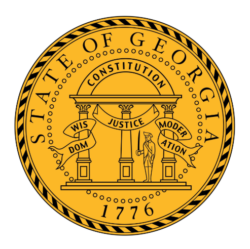Georgia’s electric membership cooperatives (EMCs) and telecom providers remain split on how best to bring broadband to rural parts of the state, reported The Brunswick News. The primary issue lies with fees – EMCs want the Georgia Public Service Commission (PSC) to nearly double what they can charge providers to attach equipment to utility poles.
The News reported the current fees are $20 per pole per year, and the EMC wants the sum raised to $37.95 per pole annually. Conversely, providers call for a decrease in rates, to $7 per pole, based on a federal law adopted in 1978, requiring the FCC to set rates.
The decision rests with the PSC regarding fees. The Georgia General Assembly passed legislation earlier this year that the PSC will decide how much EMCs can charge for pole attachments. On Tuesday, the commission opened hearings on the matter, with representatives from both the EMCs and providers providing testimony.
According to Chris Stevens, president and CEO of Coweta-Fayette EMC, the rate the EMCs are seeking is fair based on the additional cost to the utilities. “If EMCs aren’t permitted to recover a fair rate for our pole attachments, these [broadband] deployments may not exist,” he added. Stevens also presented an offer to incentivize providers by charging just $1 per pole per year for attachments in areas where EMC customers currently lack broadband service, reported The News.
Lawyers representing telecom providers argued that nearly doubling the pole attachment rate in areas that don’t qualify for the $1 discount would give the EMCs a revenue windfall. Mari Browne, representing the Georgia Cable Association, disputed the EMCs’ claim that lowering pole attachment rates would force the utilities to raise customers’ monthly bills. “Changes in pole rents … don’t impact service rates,” Browne said.
Stevens countered that the FCC’s lower pole attachment rates are no guarantee that utilities will aggressively expand broadband service where it’s needed most. For example, Georgia Power charges the FCC set rate, and 43 percent of its rural service area is unserved, he added.
The PSC is slated to hear testimony by additional witnesses this week. The commission is due to vote on the matter in mid-December, reported The News.





Reader Interactions